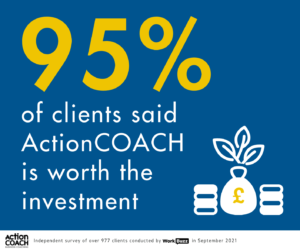Who Uses Business Coaches and Which Programme Works Best?
Who uses business coaches and which programme works, is something we get asked from time to time. The following will give you some ideas into who, what and why business owners and businesses use our services. Also why they find them valuable to the progression of their business or organisation.
Business coaching is used by a wide range of individuals and organisations such as the following:
Entrepreneurs and Startups: Entrepreneurs often turn to business coaches for guidance and help developing their business strategy, leadership skills, and overcoming challenges. Basically the issues that come with starting a new business. They can also help with networking, fundraising, and hiring strategies.
Small Business Owners: Small business owners may use business coaches to help them improve their business performance, customer satisfaction, and profitability. A coach can provide guidance on areas such as marketing, sales, financial management, and human resources.
Executives and Leaders: C-suite executives and other high-ranking corporate leaders might work with business coaches to enhance their leadership skills, handle change management, make strategic decisions. A business coach will also work with them on their personal development areas such as emotional intelligence and work-life balance.
Middle Managers: Middle managers often use business coaches to improve their management skills, decision-making abilities, and to handle workplace conflicts. They can also work on their career development and progression strategies.
Teams and Departments: Coaches can be engaged to work with teams or entire departments in an organisation to enhance team performance, improve communication, and foster a more effective, collaborative environment.
Career-Changers and Individuals: People who are looking to transition into business or shift their career paths might use a business coach to guide them on their journey. Helping with decision-making and strategy, and provide support and motivation.
Non-profit Organisations: Leaders and teams in non-profit organisations often use business coaches to help them with strategy, fundraising, volunteer management, and other challenges unique to the non-profit sector.
Government Agencies: Like businesses, government agencies also face challenges related to strategy, leadership, and team performance, and can benefit from the help of a business coach.
In short, any individual or organisation that wants to improve its business performance, solve specific business problems, or develop new skills can potentially benefit from the services of a business coach.
Both one-on-one (1-2-1) coaching and group coaching have their own unique benefits and can be effective in different contexts. However, there are several potential advantages to one-on-one coaching that can make it particularly beneficial in certain situations:
Personalised Attention: In one-on-one coaching, the coach’s full attention is focused on one individual. This allows for a deep dive into the specific challenges, needs, and goals of that person. The coach can tailor their approach and techniques specifically for the individual, which may not be possible in a group setting.
Confidentiality and Trust: Some individuals may feel more comfortable discussing sensitive or personal issues in a private setting. This can allow for greater trust and openness, which can be crucial for effective coaching.
Flexibility: One-on-one coaching can be more flexible in terms of scheduling and the pace of progress. The coaching can move at a speed that suits the individual, and sessions can be scheduled at times that are convenient for them.
Immediate Feedback: In one-on-one coaching, the individual can receive immediate, direct feedback on their ideas, behaviour, and progress. This allows for real-time learning and adjustments.
Accountability: In one-on-one coaching, the individual is directly accountable to the coach. This can provide extra motivation and can help ensure that the person follows through on their commitments and actions.
Personal Growth and Development: One-on-one coaching often focuses on the individual’s personal growth and development. This can lead to improvements in many areas, such as emotional intelligence, leadership skills, and work-life balance. They will benefit the individual both professionally and personally.
Deeper Relationship: One-on-one coaching can allow for a deeper, more personal relationship between the coach and the individual. This can increase the effectiveness of the coaching and can lead to greater personal satisfaction and fulfillment.
Conclusion
Who uses business coaches and which programme works best, has no definitive answer. However, It is important to note that group coaching can be highly effective in certain situations. As an example, when the goal is to improve team dynamics, foster group learning, or address issues that are common to a group of individuals. The best choice will depend on the specific context, goals and individual preference.
Also to address the elephant in the room, 121 is a larger investment but generally the rewards and ROI far outway this.






